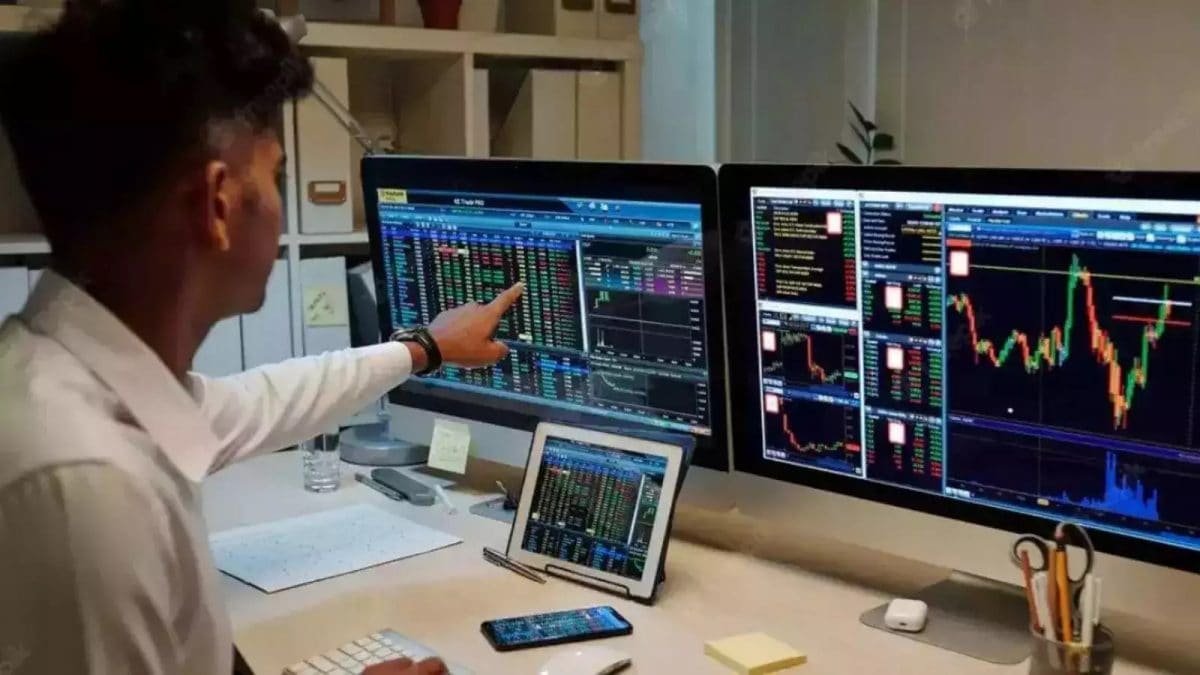Last Updated:June 18, 2025, 11:50 IST
Experts believe that while the current escalation has not yet crossed a threshold to warrant a full-blown market correction
Stock Market
Israel-Iran Conflict: Indian benchmark indices, Sensex and Nifty, traded on a subdued note Wednesday amid escalating missile strikes between Iran and Israel, prompting investors to tread cautiously. As of 11:40 AM, the BSE Sensex was down 310 points or 0.38% at 81,272.93, while the NSE Nifty50 slipped 80 points or 0.32% to 24,774.30.
Market experts suggest that investors may have already priced in the geopolitical risks from the Israel-Iran conflict. Monday’s strong market close indicates a shift in investor attention toward domestic growth drivers and corporate fundamentals.
Middle East Tensions: Has the Market Priced In the Israel-Iran Conflict?
According to Anubhav Sangal, Senior Research Analyst at Bonanza Portfolio, the Indian stock market seems to be factoring in a limited conflict scenario rather than a prolonged regional war. “The market has partially discounted the Israel-Iran conflict, reflecting both vulnerability and resilience. While initial reactions triggered volatility and sectoral churn, the overall discounting remains incomplete and highly conditional,” he noted.
Narendra Solanki, Head Fundamental Research – Investment Services, Anand Rathi Shares and Stock Brokers, “We believe markets have partially priced in the Iran conflict in the sense that it has taken cognisance of the conflicts, but the final outcome is still unknown and hence not priced. Believe markets are still wishful/hopeful of some kind of de-escalation coming in few days and may not have priced for any serious escalation or a potential catastrophic threshold involving US directly for the region.”
Crude Oil and Gold Prices Surge Amid Geopolitical Uncertainty
The conflict has already had ripple effects on key commodities. Crude oil prices have surged, raising concerns for India, which relies heavily on oil imports. Puneet Singhania, Director at Master Trust Group, said the spike in oil prices could stoke inflation, weaken the rupee, and weigh on economic growth.
Analysts estimate that crude prices have jumped about 10% so far, and further escalation could push them up another 8–9%. “Israel’s airstrikes on Iran have sparked fears of supply chain disruptions. The market is anxiously watching how Iran will respond. Any retaliation could send prices soaring and push the region into a deeper crisis,” said Navneet Damani, Group Senior VP and Head of Commodities Research at Motilal Oswal Financial Services.
Gold, meanwhile, has rallied to an all-time high of Rs 1 lakh in the domestic market and is nearing $3,500 per ounce globally, as investors shift towards safe-haven assets amid the growing geopolitical uncertainty.
What Should Be Your Trading Strategy?
Experts believe that while the current escalation has not yet crossed a threshold to warrant a full-blown market correction, further deterioration could lead to significant downside. Traders are advised to maintain a cautious stance, stay hedged, and keep a close watch on geopolitical developments, as volatility could spike sharply if tensions worsen.
Anubhav Sangal of Bonanza recommends investors to treat geopolitical dips as buying opportunities. “ For now, markets are treating geopolitical dips as buying opportunities, supported by India’s strong domestic fundamentals and limited direct exposure to the conflict zone,” he said.

Aparna Deb is a Subeditor and writes for the business vertical of News18.com. She has a nose for news that matters. She is inquisitive and curious about things. Among other things, financial markets, economy, a…Read More
Aparna Deb is a Subeditor and writes for the business vertical of News18.com. She has a nose for news that matters. She is inquisitive and curious about things. Among other things, financial markets, economy, a… Read More
- First Published:
#IsraelIran #War #Nifty #Priced #Middle #East #Tensions #Experts #Analyse #Markets #News



